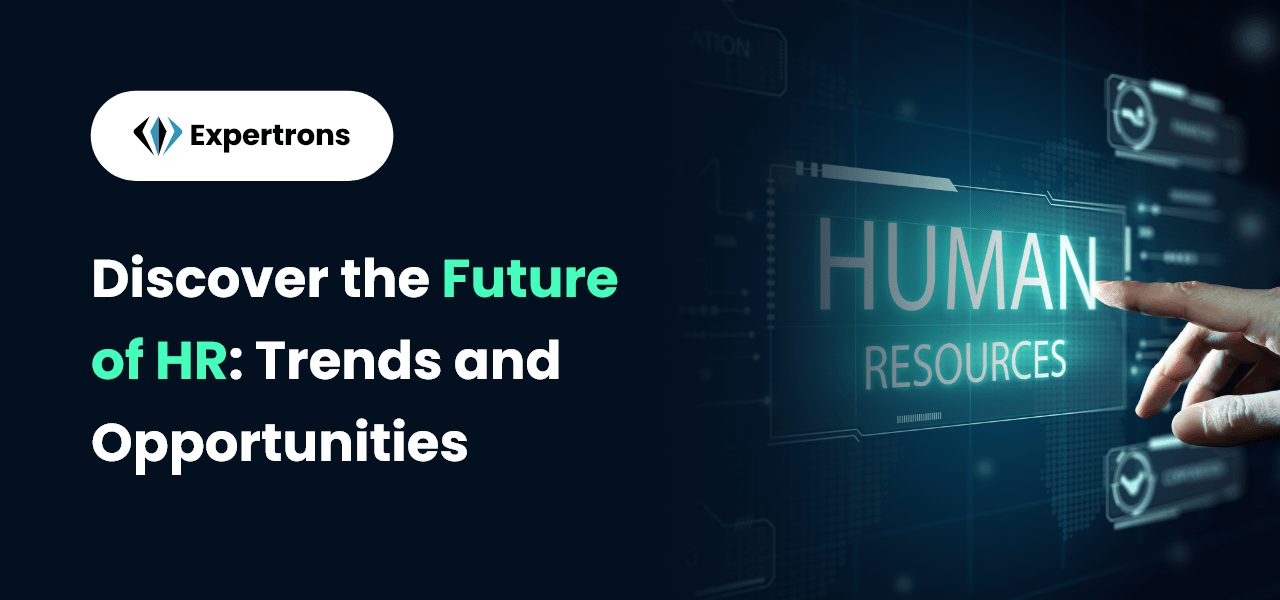Introduction
In the fast-evolving realm of Human Resources (HR), the future is brimming with potential, offering a plethora of job opportunities for HR professionals to shape and lead organizations into a new era of success.
As companies continue to embrace technological advancements and adapt to new workplace dynamics, the future of HR is poised for significant changes.
Today we will explore the emerging trends in HR, the growing job opportunities for HR professionals, and how they can equip themselves for a brighter future through HR courses.
HRM Challenges in the Present Landscape
The present HR landscape presents various challenges that HR professionals must navigate. Some of the key hurdles include:
Talent Acquisition and Retention
Attracting top talent and retaining skilled employees remains a pressing concern for HR departments. With the job market becoming more competitive, HR professionals need to adopt innovative recruitment strategies and create engaging employee experiences.
Diversity and Inclusion
Fostering a diverse and inclusive work environment is crucial for organizational success. HR must actively address issues related to gender, ethnicity, and other forms of diversity to create a harmonious and productive workplace.
Technology Integration
The rapid advancement of technology has reshaped the HR landscape. HR professionals must embrace digital tools for tasks like recruitment, onboarding, and performance management to stay efficient and relevant.
Workplace Culture
Nurturing a positive workplace culture is essential for employee satisfaction and productivity. The major role of HR is to build a cohesive work environment that aligns with the organization’s values.
Skills Gap and Learning Initiatives
The emergence of new technologies and job roles has led to a skills gap in the workforce. HR must identify skill deficiencies and implement effective learning and development programs to upskill employees.
Also read: Unveiling the Benefits of a PG Diploma in Banking and Finance
Emerging Trends and Job Opportunities for HR Professionals
Despite the challenges, the future of HR is bright and promising. Several emerging trends present exciting opportunities for HR professionals to thrive in their careers:
People Analytics and Data-Driven HR
As organizations collect vast amounts of employee data, HR professionals can leverage analytics to make informed decisions. From predicting employee turnover to identifying performance trends, data-driven HR opens new avenues for optimizing talent management strategies.
Remote Work and Flexible Work Arrangements
The COVID-19 pandemic accelerated the adoption of remote work, and many companies have embraced hybrid work models. Responsibilities of HR include shaping remote work policies, fostering virtual collaboration, and ensuring employee well-being in a remote work environment.
Employee Experience and Well-Being
The focus on employee experience has become paramount for organizations. HR can take the lead in designing employee-centric policies, wellness programs, and benefits that enhance job satisfaction and well-being.
Artificial Intelligence (AI) in HR
AI-powered tools like chatbots and virtual assistants are transforming HR processes. HR professionals can leverage AI for tasks like candidate screening, answering employee queries, and streamlining administrative tasks, freeing up time for strategic initiatives.
Upskilling and Reskilling Initiatives
With the dynamic nature of jobs, upskilling and reskilling have become crucial for workforce development. HR can collaborate with L&D departments to design training programs that align with emerging job roles and technologies.
Click Here: Lack in-demand HR skills? Get certified by E&ICT Academy IIT Guwahati to gain 10x valuable skills
HR Certification Courses: Paving the Way for a Bright Future
To capitalize on the abundant job opportunities for HR professionals in the future, continuous learning and upgradation of skills are vital. HR certification courses offer a powerful means to enhance knowledge, credibility, and marketability in the HR domain.
Stay Relevant and Competitive:
HR certification courses equip professionals with the latest industry insights, best practices, and emerging trends. By staying updated, HR professionals can bring innovative solutions to their organizations and remain competitive in the job market.
Specialization and Expertise:
HR certifications offer specialized tracks such as Talent Acquisition, Learning and Development, and HR Analytics. These focused certifications allow professionals to develop expertise in their chosen area, making them valuable assets to organizations.
Credibility and Career Growth:
HR certifications add credibility to a professional’s profile and demonstrate a commitment to continuous learning. They also open doors to career advancement and higher positions within an organization.
Networking Opportunities:
Engaging in HR certification courses provides ample networking opportunities. Connecting with like-minded professionals and industry experts can lead to valuable insights, partnerships, and potential job referrals.
Adapting to Future Challenges:
HR certification courses often emphasize future-ready skills and strategic thinking, empowering professionals to tackle upcoming HR challenges effectively.
Also read: 7 Ways To Write Career Objective For Finance Fresher
Conclusion
The future of HR is promising, with abundant job opportunities for HR professionals across various industries. However, to thrive in this dynamic landscape, continuous learning and skills enhancement are imperative.
HR certification courses from Expertrons offer a pathway to success by providing valuable knowledge, specialization, and enhanced credibility. By embracing emerging trends and honing their skills, HR professionals can seize the endless opportunities that lie ahead and contribute significantly to their organization’s success.
Frequently Asked Questions
The HR industry will witness transformative trends like data-driven decision-making, AI integration, and a focus on employee experience, shaping the way organizations manage their talent.
Remote work presents HR professionals with opportunities to design flexible work policies, enhance virtual collaboration, and prioritize employee well-being in a distributed work environment.
By harnessing data analytics, HR can gain valuable insights into employee performance, turnover predictions, and recruitment patterns, leading to more informed and effective HR strategies.
Essential future skills for HR professionals include adaptability to technology, data analysis, strategic thinking, and an ability to foster a diverse and inclusive workplace. These invite various job opportunities of HR professionals who are trained and certified.
HR technology, like AI-powered chatbots and data management systems, will streamline administrative tasks, enhance candidate screening, and facilitate seamless employee engagement, revolutionizing HR processes.











